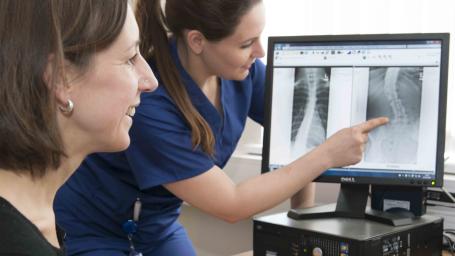Based in the Bristol Brain Centre, the Movement Disorders Research and Clinical Team, including the Deep Brain Stimulation (DBS) and Parkinson’s Disease Advanced Therapy teams, allows for a fully integrated approach to providing clinical care and offering opportunities for patients to participate in research.
The Movement Disorders team work closely on a number of regional, national and international research studies, and are developing a mixed portfolio of studies that will collectively address knowledge gaps in Parkinson’s Disease and other Movement Disorders.
Please speak to the person treating you to find out if there is a research study that may be able to help you.
Chief PD
This trial aims to determine whether the drug, rivastigmine, can prevent falls in people with Parkinson's. To test whether the drug will work, people in the trial are being allocated into two groups. One group is given the actual drug (the 'Active' group) and the other group a 'dummy' medication (the 'Placebo' group). The placebo looks identical to the active medicine but contains no active drug. The trial is 'double blind' which means that neither the trial team, participant's doctor nor the participant will know which group you are in until the trial is over. Recruitment to this trial ends on the 30th of April 2023.
Principal Investigator: Dr Edward Richfield
Planned End Date: 31.07.2024
Local Ref (R&D no): R&D 4531
SPARKS
SPARKS Study aims to investigate the treatment effects of a new DBS device called Picostim. DBS devices use electrical stimulation to 'turn off' some areas of the brain, and are sometimes used when medication cannot adequately control the symptoms of Parkinson's. The purpose of this study is to evaluate this new DBS device and a new implantation procedure, first in man, skull mounted battery.
Principal Investigator: Dr Alan Whone
Planned End Date: 07/2025
Local Ref (R&D no): R&D 3174
MOVE WALES
The study aims to identify variation in inherited material (DNA, Genes) that may cause, or increase the risk of movement disorders. This may occur when many people in a family are affected by a similar movement disorder but also sometimes occur when only one person is affected. Trial team will also study blood markers that may help in diagnosis or in monitoring disease progression. This may improve our ability to diagnose these disorders and help in the development of new treatments.
Principal Investigator: Dr Kathryn Peall, Cardiff University, Collaborators at Southmead Hospital: Dr Konrad Szewczyk-Krolikowski
Planned End Date: 31.03.2024
Local Ref (R&D no): R&D 4590
Take Part in Research

Become one of the thousands of people taking part in research every day within the NHS.
About Research & Development

Find out more about our research and how we're working to improve patient care.
Contact Research
Research & Development
North Bristol NHS Trust
Level 3, Learning & Research building
Southmead Hospital
Westbury-on-Trym
Bristol, BS10 5NB
Telephone: 0117 4149330
Email: research@nbt.nhs.uk

